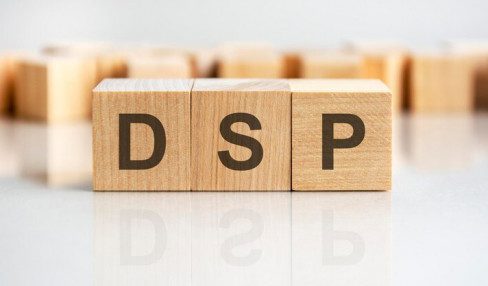How To Properly Do A Background Check On Yourself Like An HR Would
5 Mins Read
Published on: 24 March 2023
Last Updated on: 09 September 2024

toc impalement
The importance of conducting a background check on yourself cannot be overstated. Whether you’re applying for a job, seeking housing, or just want to know what information is out there about you, it’s essential to understand what is in your background check.
This article will cover the different types of background checks, why it’s important to conduct a background check on yourself, and how to properly do it. By the end, you will have a better understanding of what to expect from a background check, what information is typically included, and how to take action if you find any inaccuracies or negative information.
Understanding the Types of Background Checks
Background checks are a common practice used by employers, landlords, and individuals to evaluate a person’s suitability for employment, tenancy, or personal reasons. Employment background checks are used to verify employment history, education, criminal record, and other relevant information. Drug tests or credit checks may also be conducted depending on the job’s nature. In the least you’ll have to undergo the background check, but drug tests are also important indicators for employers who are trying to uphold workplace productivity and safety
Tenant background checks evaluate a person’s rental history, credit score, criminal record, and employment history. Personal background checks are conducted by individuals to identify any errors or inaccuracies in public records, including criminal, court, and driving records. Different types of background checks may result in different types of reports, so it’s important to understand the implications of the results.
Gathering Your Personal Information
To conduct a thorough background check on yourself, you will need to gather important documents such as your driver’s license, social security card, birth certificate, and any relevant employment or education records. Having these documents readily available can save you time and make the process smoother.
If you are missing any of these documents, it’s important to obtain them before proceeding with the background check. You may need to contact the relevant agencies or organizations to request copies of certain documents, which can take time, so it’s best to plan ahead and allow sufficient time for the process.
In some cases, you may need to obtain copies of official records to conduct a thorough background check. For example, you may need to request a copy of your criminal record from the relevant government agency.
Knowing how to obtain these records and what information you will need to provide can help streamline the process. It’s also important to note that obtaining copies of official records may involve a fee.
Some agencies or organizations may also require specific forms or documentation to be submitted along with the request. Therefore, it’s recommended to research the requirements and fees beforehand to ensure a smooth and efficient process.
It’s important to ensure that all the personal information you gather for the background check is accurate and up-to-date. This can include verifying your name, address, and other identifying information. Reviewing your credit report and other records for any inaccuracies can also help you identify potential issues and take steps to correct them.
It’s essential to review all the information carefully, including any criminal or court records, to ensure that they are accurate and up-to-date. If you find any errors or discrepancies, it’s important to take immediate action to correct them, as this can impact your employment, housing, or other aspects of your life.
Conducting the Background Check
When conducting a background check on yourself, it’s important to work with reputable background check companies. One way to identify a trustworthy provider is to check their credentials and reputation. Make sure the company is licensed, insured, and accredited by relevant industry bodies.
Look for online reviews and testimonials to see what others are saying about their services. Additionally, you may want to consider the company’s experience and expertise in the type of background check you need. If you’re not sure where to start, you can follow this link to read an ultimate guide on how to run a personal background check on yourself in a company which can provide reliable and accurate reports.
A good background check company should offer transparent pricing, comprehensive reports, and excellent customer service. They should be able to provide you with a clear understanding of what is included in the report and how the information was obtained. They should also be responsive to your inquiries and concerns, and able to provide you with support throughout the process. Consider their turnaround time and ensure that they comply with applicable laws and regulations.
Once you receive the background check report, it’s important to review it carefully for any inaccuracies or errors. Look for any incorrect personal information, criminal records, or other information that does not pertain to you. If you find any errors or inaccuracies, you may need to take steps to correct them.
This may involve contacting the background check company to dispute the information or contacting the relevant agencies to request corrections. Be aware that correcting inaccurate information may take time and effort, but it’s important to ensure that your background check report is accurate and reflects your true personal history.
Taking Action on Your Findings
After conducting a background check on yourself, it’s important to understand how the results may impact your future opportunities. For example, a negative criminal record may limit your chances of being hired for certain jobs or being approved for housing. It’s important to be aware of any potential limitations or restrictions and plan accordingly. Knowing what’s in your background check can also help you address any potential issues before they become a problem.
If your background check report includes negative information, such as a criminal record or poor credit score, it’s important to take steps to address these issues. This may involve working with a credit counselor or attorney to address any outstanding debts or legal issues.
Depending on the nature of the negative information, you may also need to disclose it to potential employers or landlords and explain the circumstances. Taking proactive steps to address negative information can help mitigate any potential negative impacts on your future opportunities.
There are several things you can do to improve your background check results. These include ensuring that your personal information is accurate and up-to-date, maintaining a good credit score, avoiding any criminal activity, and maintaining good references from previous employers or landlords.
Additionally, being upfront and honest about any negative information in your background check can demonstrate your integrity and willingness to take responsibility for past mistakes. By taking these steps, you can help improve your chances of success in future employment or housing opportunities.
Key Takeaways
Conducting a background check on yourself is an important step to take to ensure that the information being shared about you is accurate and up-to-date. Key takeaways include the types of background checks available, the importance of gathering personal information, identifying reputable background check companies, reviewing the report for inaccuracies, and taking action on any negative findings.
It’s also essential to maintain a good personal history and address any potential issues proactively. By conducting regular self-background checks, you can stay informed about your personal history and take action to correct any inaccuracies. Finally, additional resources, such as government agencies and online tools, can help you conduct a thorough and accurate background check.
Additional:


















Comments Are Closed For This Article